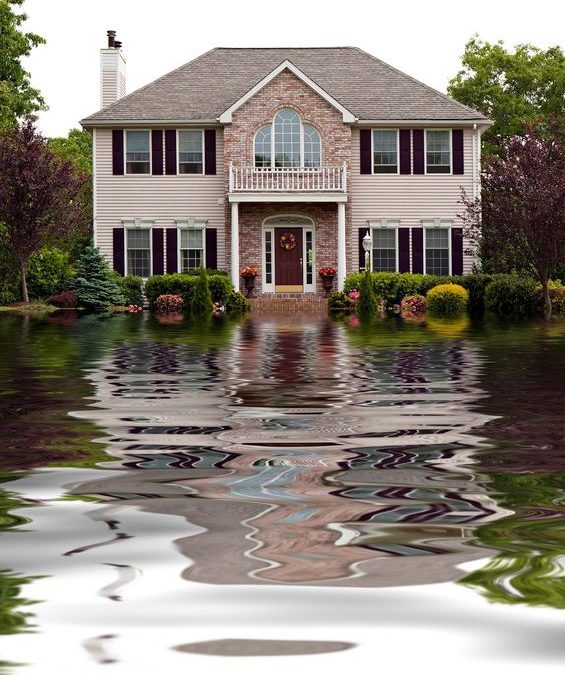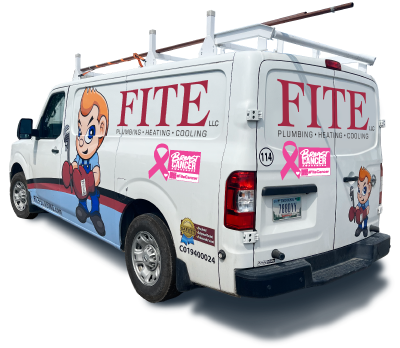While we don’t have to be concerned about our homes and property when it comes to hurricanes here in Central Indiana, we do have to deal with the flooding. Especially in the fall and spring when the rain falls freely, and the rivers swell and spill over their banks, flooding is a problem for residents in almost every county, including Morgan County, Hendricks County, Marion County, and all the rest of the metro Indianapolis area that Fite Plumbing serves.
How flooding can affect a plumbing system
When residents think about flooding in this area, their first thoughts are about the damage to homes and businesses and the loss of contents that get water damaged. What might be hidden beneath the obvious is damage to your plumbing systems, which can result in an unhealthy situation for your family. Of course, there are some things that might not be hidden, things that might be obvious such as damage to any plumbing pipe or fixture. That can be evident when a tree falls on a house and walls with plumbing are damaged, or when lightning strikes a well pump.
But let’s consider what might be hidden problems in your plumbing after a flood.
- Clogged drains.Floodwater contains all sorts of dirt and debris, and when it “does down the drain” it could leave silt and residue. It’s a good idea to have drains cleaned out after a flood. You don’t want a subsequent clog re-filling your basement or even your tubs and sinks.
- Broken pipes inside the building or home.While major damage to a home or property will reveal broken pipes right away, there could be fissures and leaks lurking after the flood. It’s difficult to tell if the walls are simply not yet dried out, or if there is another problem to be addressed. An inspection of your plumbing system by professionals will help identify any hidden problems.
- Broken pipes underground outside the building or home.It can take days, or weeks, for saturated soil to absorb water after a flood. If you see standing water or soggy ground, an underground pipe might be broken. The Fite Plumbing professionals have tools such as cameras that will be able to help identify any problems with underground pipes. Sometimes you might see signs of broken or damaged underground plumbing, including:
- Bubbling or whistling noises.Obstructions or damage to the lines that make it difficult for water or air to pass through, resulting in weird sights and sounds.
- Leaks will create unstable ground that will give way or create craters.
- Bad smells.A big sign that sewer lines have been damaged or broken.
- Persistent clogs inside the property.When the drains keep backing up, or the toilet won’t flush, it might be a problem outside.
- Low water pressure or no water.When there is a change in the water pressure from faucets and showerheads, it could be a sign of a broken or damaged supply line outside. Obviously if you have no water coming out the faucets, there is clearly a problem.
- Change in water quality.If the water coming out faucets has changed in appearance or odor, that could be a sign that there is a damaged supply line.
- High water bill.If your bill arrives and it is significantly larger than usual, there could be a leak inside, or outside, that is allowing water to run continuously. Don’t wait to contact a plumber to investigate. Seldom, if ever, does the situation rectify itself, and can result in significant damage to walls and floors inside, or sidewalks and drives outside.
- Foundation issues.If the foundation of your property has been affected by flooding, shifting can also create structural problems as well as damaging the plumbing system and gas lines. Many homes, especially those on slabs, have pipes running throughout the foundation itself. Repairs to a foundation must be made before repairs to the plumbing system but getting an inspection right away will lessen the stress of not knowing what could be lurking in the walls or foundation of you home.
Pay attention to your sump pump
Flooding in your home or business can also be caused by a sump pump breaking down when it gets overworked, or just wears out. It might be triggered by an unusually wet week, or not. Stay on top of your sump pump. It can be easy as 1-2-3.
- Visually check the sump pump monthly, or weekly during a wet, rainy period.
- Listen for it running and turning on and off.
- Maintain a record that reminds you of the age of the equipment. Every piece of sump pump equipment will eventually need to be replaced. If you have any concerns, contact us here at Fite Plumbing. It is always better to be safe, rather than sorry, when it comes to water issues in your home or business.
Good plumbing keeps your family safe and healthy. When you have plumbing issues, you are inviting unsafe or unhealthy conditions into your home. We don’t want that to happen to anyone in our community, which is one of the reasons Fite Plumbing is always available with our emergency 24-hour service.
Don’t let excessive rain or flooding overwhelm you. When it comes to water and plumbing, the pros at Fite Plumbing are here to help. Give us a call at 317-271-5400 before you panic. Our years of experience have shown us just about every situation you can imagine, and we know we can find a solution for whatever is happening in your house or business.


